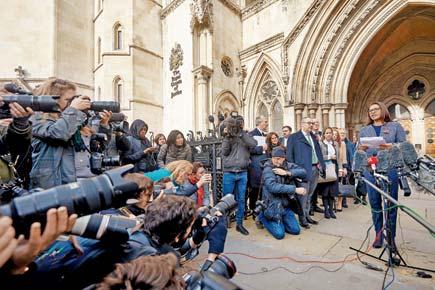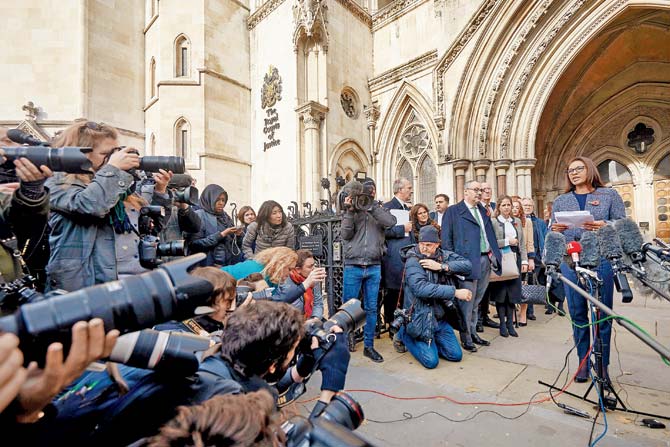Three senior London HC judges rule that PM Theresa May doesn’t have the right to use her executive power to trigger Article 50 of the Lisbon treaty


Gina Miller, lead claimant in the case, reads a statement outside the High Court in London, after winning the legal challenge that Article 50 cannot be triggered without a decision by parliament. Pic/AFP
ADVERTISEMENT
London: In a major setback to British Prime Minister Theresa May, the High Court yesterday ruled that the UK government must seek parliament’s approval before officially starting process to exit from the 28-member European Union (EU).
Three senior judges of the High Court in London ruled that May did not have the right to use her executive power to trigger Article 50 of the Lisbon treaty. “The government does not have power under the Crown’s prerogative to give notice pursuant to Article 50 for the UK to withdraw from the European Union,” the Lord Chief Justice of England and Wales, Lord Thomas, ruled.
Calling the case “a pure question of law”, he said, “The court is not concerned with and does not express any view about the merits of leaving the European Union: that is a political issue.”
The judges ruled that parliament must vote on whether the UK can start the process of leaving the EU. This means May cannot trigger Article 50 of the Lisbon Treaty to begin formal discussions with the EU without getting the approval of House of Commons MPs.
May had argued the public referendum in favour of Brexit on June 23 and ministerial powers mean MPs do not need to vote, but campaigners had argued this was unconstitutional.
The government said it would challenge the ruling in the Supreme Court, likely to take place on December 7, with speculation that the case could end up at the European Court of Justice.
“The country voted to leave the EU in a referendum approved by Act of Parliament. And the government is determined to respect the result of the referendum. We will appeal this judgment,” a government spokesperson said.
 Subscribe today by clicking the link and stay updated with the latest news!" Click here!
Subscribe today by clicking the link and stay updated with the latest news!" Click here!







